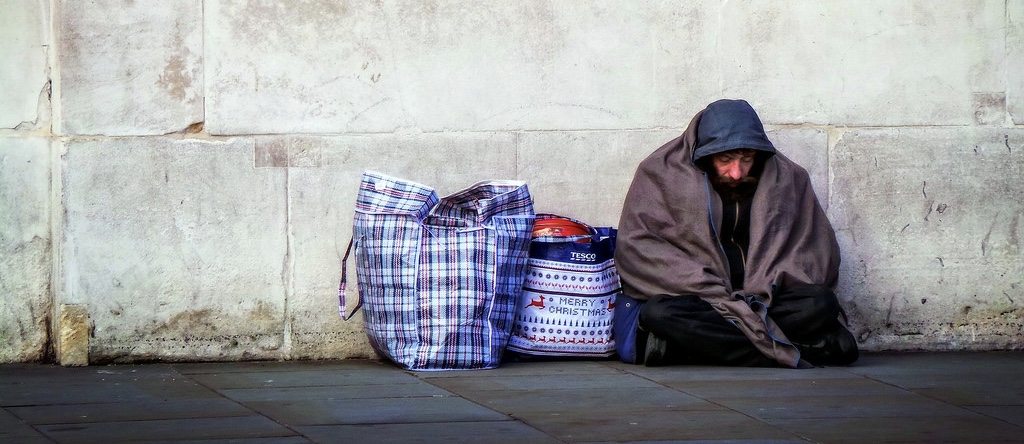Why we must change our attitude to homelessness
According to the latest figures 4,134 people are estimated to be sleeping rough on any one night in the UK. There was an increase of 16% from 2015 to 2016, and a whooping 134% increase since 2010. This is not to account for the 62% of homeless people that do not show up on official figures, the so-called ‘hidden homeless’ who are accommodated in temporary, communal accommodation or in the living rooms of friends.
University student DJ ‘Sparta’ embarked on a food run in late April to inspire the students of Warwick and Coventry University to look closer at the problem that lies, quite literally, beneath their feet. Sparta shared the experiences of many homeless people around Coventry via Twitter. One that captured particular attention was that of a man who the young female DJ helped return to his home after sleeping on the streets for 5 months.
According to the latest figures, 4,134 people are estimated to be sleeping rough on any one night in the UK.
I spoke to Sparta to find out more about this sorrowful issue and what can be done to help. According to the young DJ, her passion for the cause derives from her belief that it is an issue “that is so evident and yet, at the same time, so hidden.” She believes that we as a society “choose” to make homelessness hidden, denying the issue in order to ignore it. “People are selfish, we fail to place ourselves in another person’s shoes”.
Sparta is also aware of the stigma associated with being homeless: “We are quick to assume that the situation these people are in is due to a fault of their own and, consequently, we fail to show compassion.” She argues that students especially often view the homeless as an ‘other’. In reality, Sparta argues, anyone can “fall victim to the same trap”. With house prices constantly on the rise, several educated and qualified individuals now find themselves without a home. A recent report by the UK housing charity Shelter revealed that earners in England would need to more than double their annual salary to keep up with house prices. Shelter warns that nearly 40 per cent of renters are a month’s pay away from not being able to meet the rent.
We are quick to assume that the situation these people are in is due to a fault of their own.
I asked Sparta what can be done by students to help the homeless. “It’s easy to assume that the problem can be helped by mere donations, but it’s much simpler than that. Support is the main thing these people need. I met many people that had no support from families and friends, people who had once called themselves friends quickly became strangers when situations changed. They need support: mental, physical, and emotional. These are people that once had everything; a house, a job, even families, and they are now on the streets.”
Sparta went on to remark how “it was mainly men that were mute about financial issues and it is this that led to their current situations.” Perhaps in a society that attaches its rigid notion of masculinity to financial stability, assuming one’s lack of it involves losing a sense of one’s masculine identity.
When asked to recount any particularly moving situations, Sparta recounts the story of a man “who once lived in Essex and was homeless for about four months when I met him on the food run. He had rental payments that were overdue and had no support, so he was kicked out of his home.”
“The change from having everything to having nothing was very humbling for me. I could not imagine myself in such a situation. What struck me was that he’d heard from a friend that Coventry was a ‘good spot’ to be homeless. If he wanted to survive being homeless, he should go to Coventry.”
In a society that attaches its rigid notion of masculinity to financial stability, assuming one’s lack of it involves losing a sense of one’s masculine identity.
While this statement may seem ludicrous at first, one must acknowledge that life as a homeless person is indeed a constant battle for survival. In most places, to survive the harsh conditions of life on the streets is near impossible. Homelessness is an issue that endangers lives, and we must treat it with the seriousness it deserves.
As students, the concept of homelessness seems foreign to us. We’re young, educated, and full of ambition; to imagine that we could become victims of the street seems so far from reality that it is easy to disassociate from those who are. According to this mentality, however, the thousands of men, women, and children who sleep on the streets have ‘chosen’ to be homeless. But no one opts to not have a home.
Feigning sympathy but doing nothing does not help those that sleep on the streets every night. As Warwick students, our two main places of residence– Coventry and Leamington Spa– are plagued by extremely high levels of homelessness. Alongside Sparta, other inspirational students have tried to help: the Leamington Winter Support, for example, was co-founded in 2015 by a group of Warwick students to provide shelter for the homeless in the harsh winter months. We must look up to students like these and seek to help in whatever way we can.

Comments